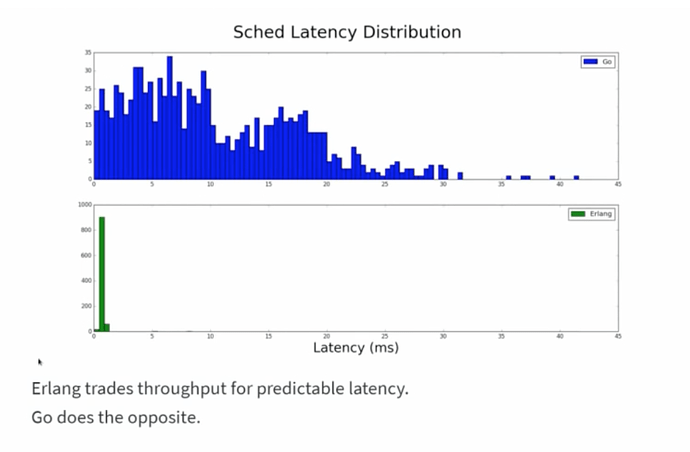Hi all,
I’ve run the Techempower fortune benchmark locally, Elixir/Phoenix and Golang/fasthttp.
Removed all unnecessary code in both Elixir and Go.
I’m trying to get the best performance out of the Elixir/Phoenix version.
Tuning for Elixir/Phoenix:
-
disabled all unnecessary plugs in router.ex:
pipeline :browser do
plug :accepts, [“html”]
end -
set DB adapter pool size to 40
-
used the same HTML template as Go
-
set logging to error
-
compiled protocols
-
start server: MIX_ENV=prod PORT=4000 elixir -S mix phx.server
No tuning for Go.
I use wrk to perform the load tests:
wrk -t6 -c12000 -d60s -T10s http://.../fortune
Client is physical and server is a domU/2vcpu/4GB. OS: FreeBSD. 10 runs for each load test.
For Elixir/Phoenix:
- Average latency 408ms, max 8s
- Req/s 2400
For Golang:
- Average latency 123ms, max 1s
- Req/s 8600
I did my first Go tests with net/http and peaked at 4000 req/s so I replaced it with fasthttp and got 8500+ req/s
Are there faster alternatives to Cowboy ?
How do you fine tune production environment ? What OS is best suited for the Erlang VM ? What FS ? specific OS tunables ?
Thanks


























